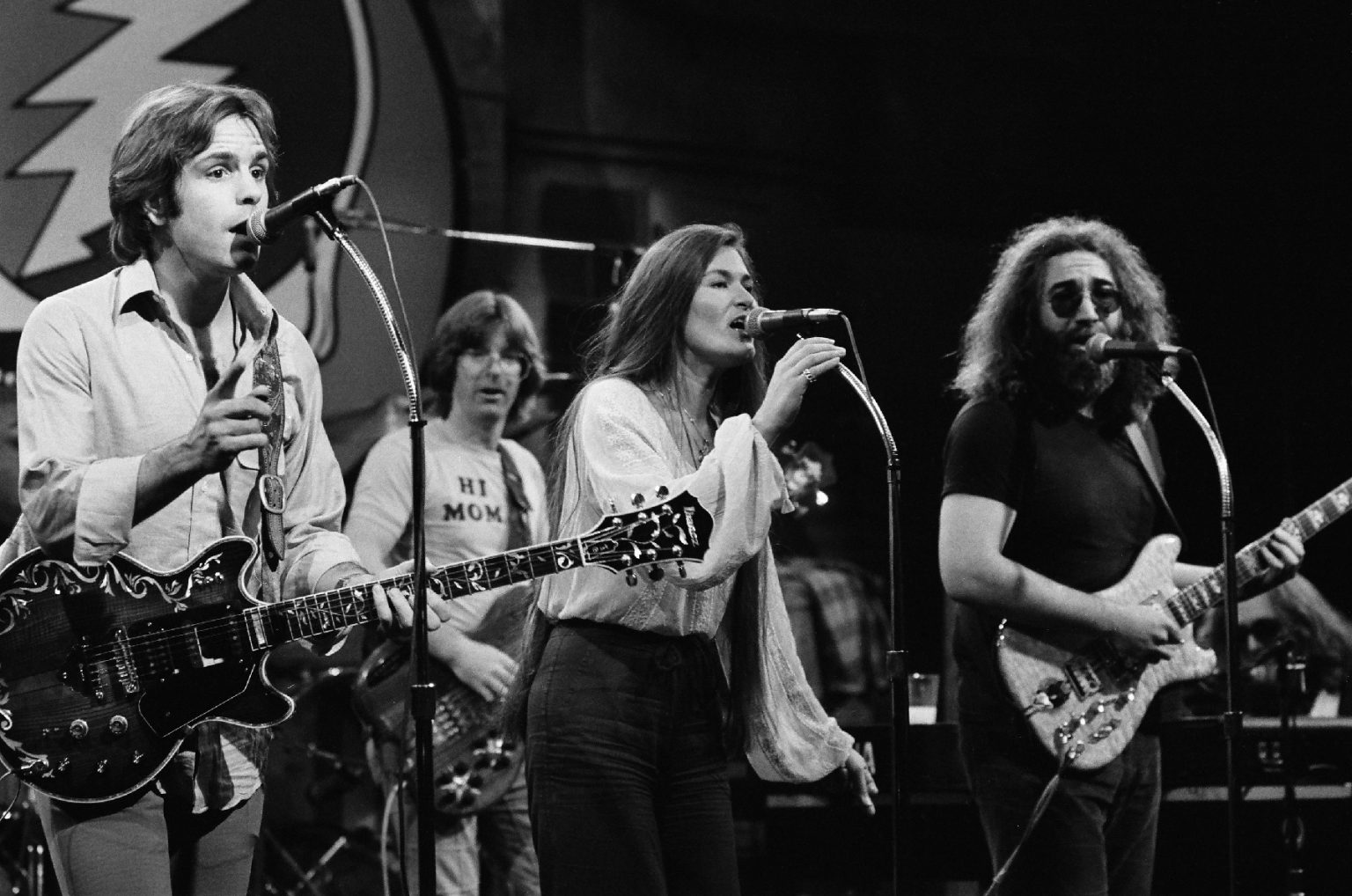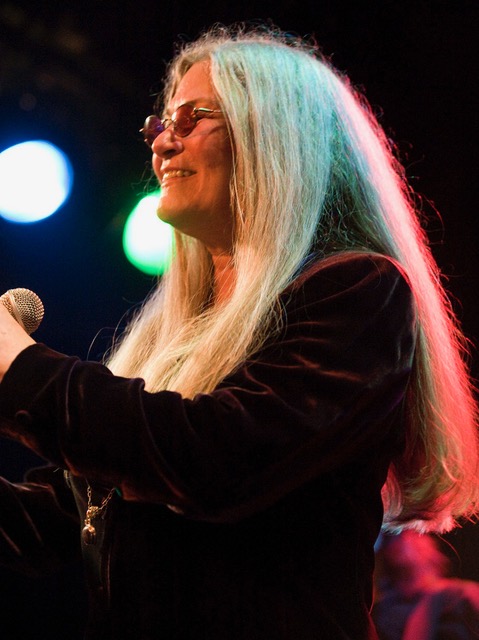
Editor’s note: Donna Jean sang backup on “When a Man Loves a Woman” by Percy Sledge in 1966 and “Suspicious Minds” by Elvis Presley in 1969. Her vocals were featured on other classic recordings by Boz Scaggs and Duane Allman, Neil Diamond, and more. Donna was also a member of the Grateful Dead from 1972 to 1979. This feature was originally published in 2021 as part of our column ‘Gestures,’ in which we reflect on women’s contributions to music and movement.
As a woman, a feminine creature of this Earth, I ponder what that means. Alabama endured the wrath of Mother Earth as tornadoes ripped through the area leaving homes flipped and lives lost in her wake. Yet gentle waters heal and sunshine resumes to warm us all. We remain fluid and perpetually moving forward. They say the songs come from the mud around Muscle Shoals, Alabama. The Tennessee River is known to the Native locals as “the river that sings.”
Donna Jean Godchaux re-released her song “Shelter,” as re-imagined for the times in which we currently live. There is no better force of nature to check in with on International Women’s Day.
June:
I’m so honored to chat with you. You are definitely a huge inspiration to me.
Donna Jean:
Where are you?
I’m in central Illinois.
Well, we had a big day yesterday.
That’s what I saw. Are you OK?
Yeah, but it was scary all day long. There were tornado warnings out literally all day. And it’s just… I can’t tell you how scary it is.
You know, we got a bunch of warnings, but nothing. We didn’t get any weather up here. But really, they just kept saying something like that. So I’m sorry it came to you instead, huh?
Well, I think a little south of us. Six people died.
Oh, my God.
Just a little bit south of us. So tornadoes are no joke.
I saw a house flipped on its side in the news this morning!
Thank God we’re still standing. Everything’s OK.
Good, good. Well, do you want to talk about “Shelter,” your new re-release?
Sure.
Awesome. The first thing, just listening to this track, it’s got that guttural kind of… what they describe as the “Muscle Shoals sound.” I also feel like the lyrics, it’s got a very divinely feminine energy to it. Can you talk to us about the field of energy in the area this year? Crazy tornadoes n all. How did that inspire you?
Well, let me see how I can answer that question. First of all, what you’re describing as the guttural thing, I would describe or what I was wanting to come about regarding this remix is, I wanted a more tribal sound. And I think that’s what you’re describing as far as the music is concerned. The original track was… It was fine, but it wasn’t what I had imagined or wanted.
When I wrote the song, I was thinking something else. And so all of these years, Jeff Matteson and I have talked about, we need to do something. We need to get some background voices on the choruses. I just wanted a more tribal sound from the rhythm section. And so what we did was I got these three girls here who are fantastic singers and they sing on just about everything that’s recorded here in Muscle Shoals. And I got them to do the background vocals.
And then my husband replaced the bass. And then the studio owner, Jimmy Nutt of the Nutt House, is also a drummer and a very close friend, and he replaced the drums, most of the drums, and it just came out exactly the way I wanted it to be. Finally, you know, after all these years of hearing it that way, it just changed the whole dynamic of the song. It’s more present and more alive than it was originally.
Did you feel that complete circle of having three girls come in like you did when you were young?
Yes, actually. Yes.
Complete circle to reach back and give what had been given to you, kind of neat!
And, you know, I think people would have expected me to do some of the background vocals, but I didn’t do anything on the background. I just told the 3 of them to have at it. And I knew basically what I wanted, but I really wanted that deep and strong kind of gospel choir sound that took it up. And they came through. They came through!
The lyrics, the timing; it is everything. “Changes in the earth, changes in the air. Signs are everywhere.”
When I originally wrote this, I did the lyrics and the melody, and then Jeff provided the chord structure. And when I wrote the lyrics, something was going on overseas that really grabbed my attention and caused me to go there, you know, in that place to write that kind of a song. As pertinent as it was at the time, it’s 100 times more pertinent in this day and age. I mean, everything that not only is going on in America but all over the world is just tremendous. And I thought, now is the time for this song.
I have a question along those lines. I mean, you have performed all across the United States and then you even toured Europe with the Grateful Dead. Are there places that compare to that feeling of Muscle Shoals for you?
Oh, boy, like comparing apples to oranges for sure.
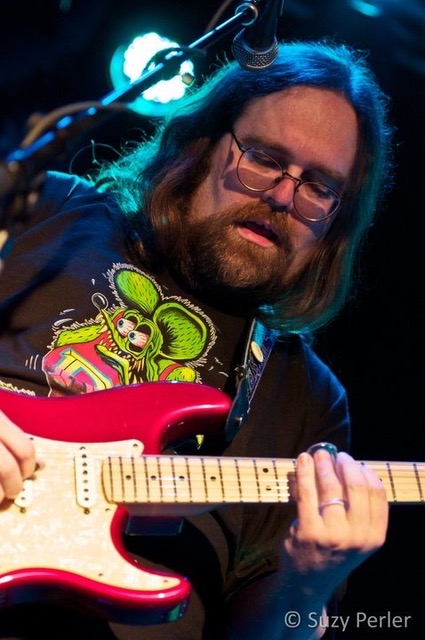
For sure. But, you know, like that place of creative inspiration. I guess the question would more be like, is there a place that inspires you? it is obvious now you’ve moved back to Muscle Shoals, that home inspires you, but you’ve seen a lot of stuff. Tell us. What does it for you?
Well, what does it for me is inspiration. And it doesn’t matter where it comes from. It’s got to be inspired. Once I get inspiration, I’m off to the races. Muscle Shoals carries, of course, an important part in my life as well as the Grateful Dead and the other side of the country in San Francisco. And I always say that those two particular areas are the two arms of who I am musically, and I am both. I’m absolutely both of those things. I am Muscle Shoals and I’m San Francisco and the Grateful Dead. And so the combination, I think, has done me a service. I don’t negate just because I was in the Grateful Dead, what I did here in Muscle Shoals. Before that, I incorporated it into my musical being. And I think it has served me well.
Absolutely. I think Muscle Shoals for me will always be the home of R-E-S-P-E-C-T Aretha Franklin. And again, you are on that same train. For me personally, “Respect” still gives me chills on every vertebra of my spine. I mean, did you know when you were growing up, did you realize, how tough it was to be a woman in this male-dominated industry?
Well, I think I probably subconsciously chose to ignore it. Move forward. Just move forward. I was not to be denied. I wanted to be a singer and there was no other choice for me as far as moving forward. I didn’t want to do the normal things. I wanted to be a singer. And I just kept on and kept on and kept on. But as far as being a woman in that situation… Well, women are really coming into their own now, but back in those days, It was there. I know it was there, but as I said, I chose to just ignore that and press on through. Anything that anybody threw at me.
Yes, but did you feel like you could carry your femininity? I mean, you look back at some lyrics… An example being “Cracklin’ Rosie” or “Come On, Eileen” and the words to those songs are so derogatory to women. Did you feel like you could wield femininity in a way that would bring us, you know, better lyrics, more female empowerment, as opposed to some of the other popular songs of the time? “When A Man Loves A Woman” is such a tender, wonderful song that embraces women. You were so young. Did you realize that you were contributing to this female empowerment piece that has now come to fruition?
Well, I don’t know that I thought about it in those terms. I just thought about it in terms of there’s something really special happening here and I get to be a part of it. And that was enough for me. You asked me something else that led to that… I want to respond to all the femininity questions. I think some people may pooh pooh this, but I was born and raised in the South. And even though you would think that femininity would be squashed, it was actually elevated. And how we thought about our femininity…
Let me give you an example of how my Southern upbringing translated into the whole Grateful Dead situation. When Keith joined the band, they asked me to join as well, right then with Keith. And I wanted Keith to get to do it first. And so I held back for two tours so that Keith could have his day. It’s a very Southern women’s thing, but it’s part of my femininity and how I think about myself.
They say that the man is the head of the family and the woman is the neck. Right?
Well, that’s the religious theme, OK? It is what it is. The man is the head of the family. And to a certain extent, you know, I can roll with that. But when it gets out of proportion… Women and men should be equal. A man should not be over the woman and the woman should not try to take over the man. They should be equal and how they distribute their masculinity or femininity.
People say, “Well, didn’t you feel like maybe you could have done more lead vocals than the Grateful Dead and whatnot?” And all I cared about at that time was singing with the Grateful Dead. And most of their singing, anyway, is not what you call background singing, even though there was of course that. Their main vocal identity was ensemble singing, where they would all three sing a whole song together. I loved doing that. Everybody was front and center.
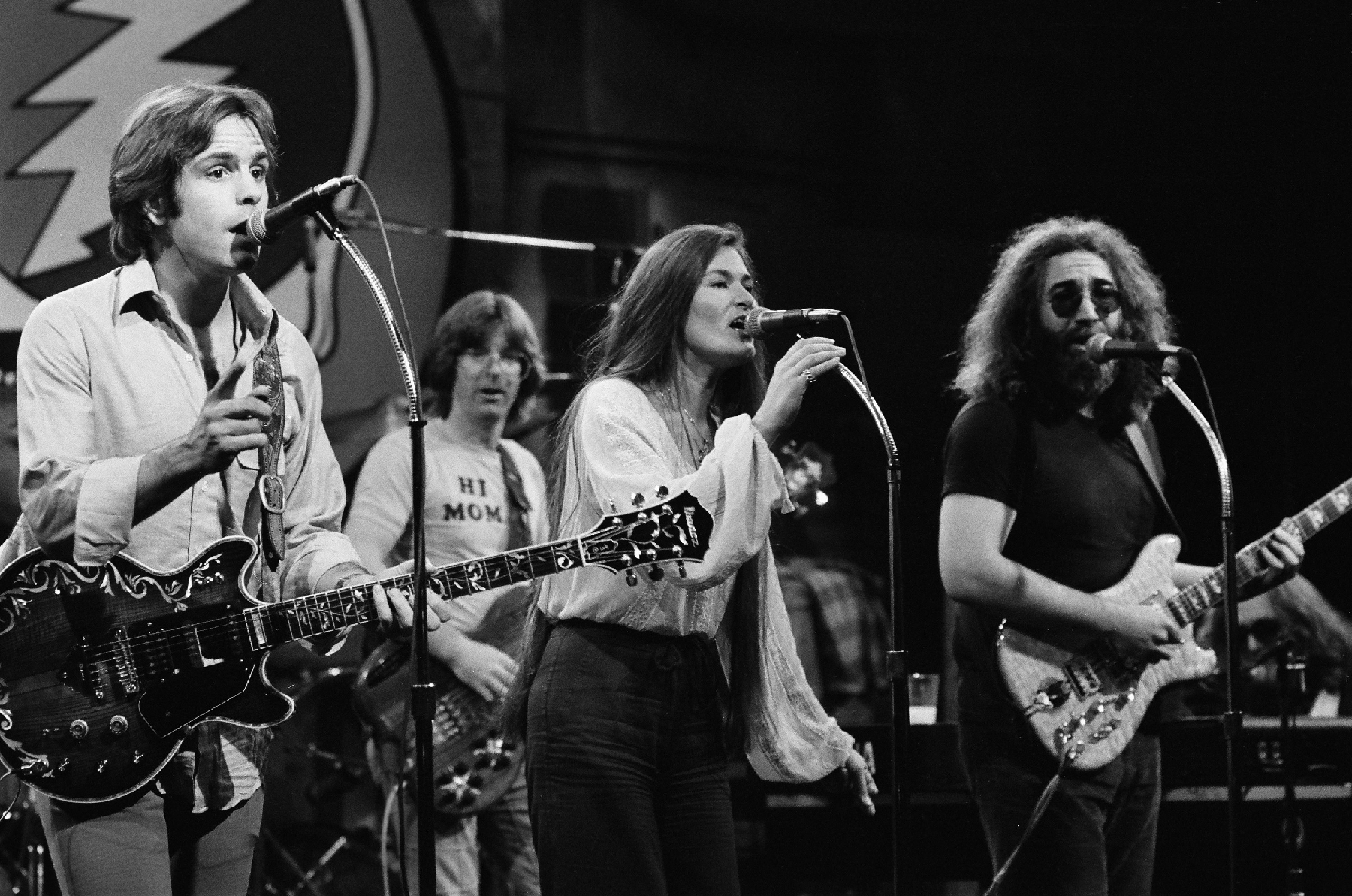
And I didn’t need to get out there and it be Donna Jean and the Grateful Dead; I didn’t want that. I didn’t feel that. I just wanted to be a part of the Grateful Dead.
Well, yeah, you joined into the band. It may be different if you created the band, if you were there in the beginning, but…
I just didn’t have the desire at that time to do anything like that. You know, I didn’t want to get myself out there in a way that was not constructive to where the band was going. I was very and still am very band-oriented. And that’s how I’ve carried myself. I’ve enjoyed doing the solo work that I’ve done. I’ve done how many albums, solo albums, I can’t remember, but there is such a special place in my heart for the band work that I have done.
I guess just a final question then: the title “Shelter” — we’ve been sheltering in place, you grew up in a recording studio… Talk to us about sheltering when it comes to making magic in the studio versus performing live. Making music for recording versus performing live without a net, what are the differences, the pros and the cons for you personally?
Well, I grew up a studio rat with earphones for everything. All of the music that I sang on was in a controlled environment with earphones and most of the, well, all of the music, was produced and arranged. You knew what was going to happen every second. It was very predictable, in a good way, what was going to be in the song. Actually that’s a shelter.
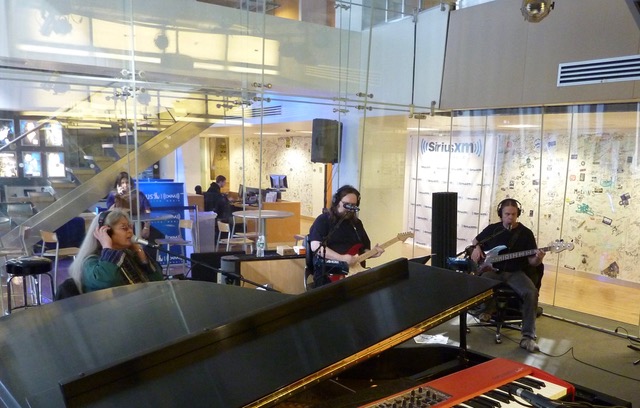
Exactly!
You’re in a controlled environment and you could turn up the drums and you could turn them down, or you can do anything you wanted in the studio. But then, for instance, I came straight from Muscle Shoals and being a background vocalist on hit records (“When a Man Loves a Woman” – Percy Sledge, “Suspicious Minds” – Elvis) and came from that atmosphere and that universe across the country to the opposite universe. I had to space travel, you know, to get there. I had never sung in a bar. I had never done anything else except be in those headphones in the studio.
And so walking out on the stage with the Grateful Dead and being in front of a live audience was something I had never experienced in my life. It was a little frightening, I have to say. It took a while to kind of, get the groove on how to relate to that universe. Everything was different, you know, the Grateful Dead music — it’s so improvisational. It’s not necessarily structured. The chord changes are there, but everything that happens between the chord changes is different every night, which makes the band so good and makes people want to come back and even hear the same songs over and over for 40 years is because they were never played exactly the same way twice.
Yeah.
And which is the opposite of the experience I had musically here in Muscle Shoals. But I love both of them. And when we recorded in the studio with The Grateful Dead, we had so much fun! I had the best of both worlds. I had my earphones and I was singing with the Grateful Dead!
Oh, Donna! This has been such a pleasure. I really appreciate your time today. Just so honored.
Thank you very much, June, and I appreciate that. You have a great day. And we’re going to have a day today without tornadoes because the sun is out!
Yes! Enjoy some sunshine.
Ok, well you have a good one. And be safe, ya hear? Careful, and all that good stuff.

